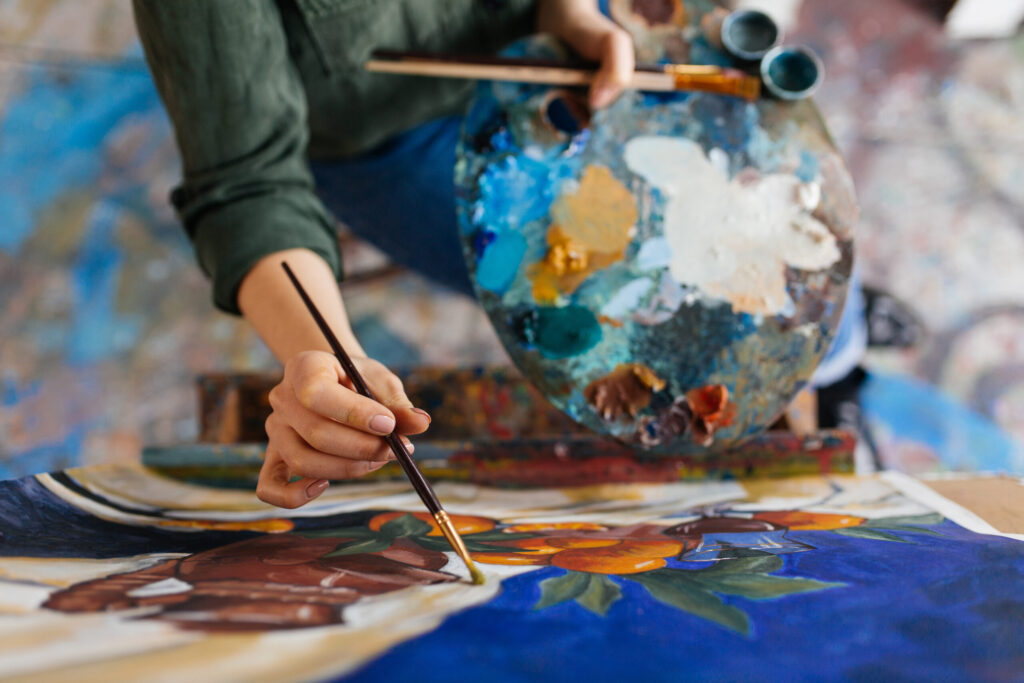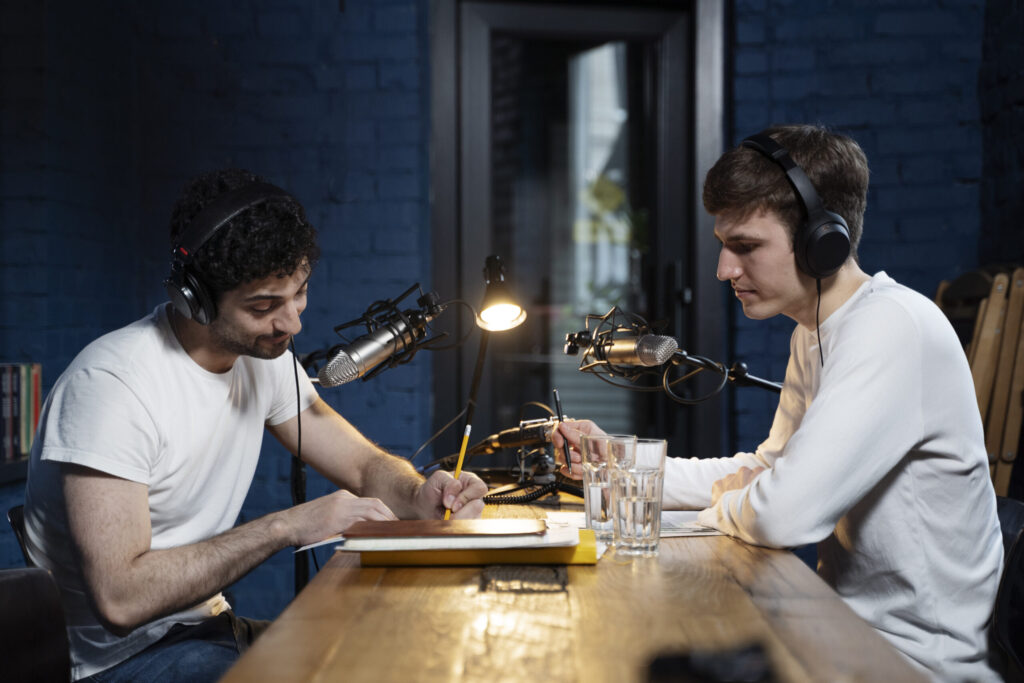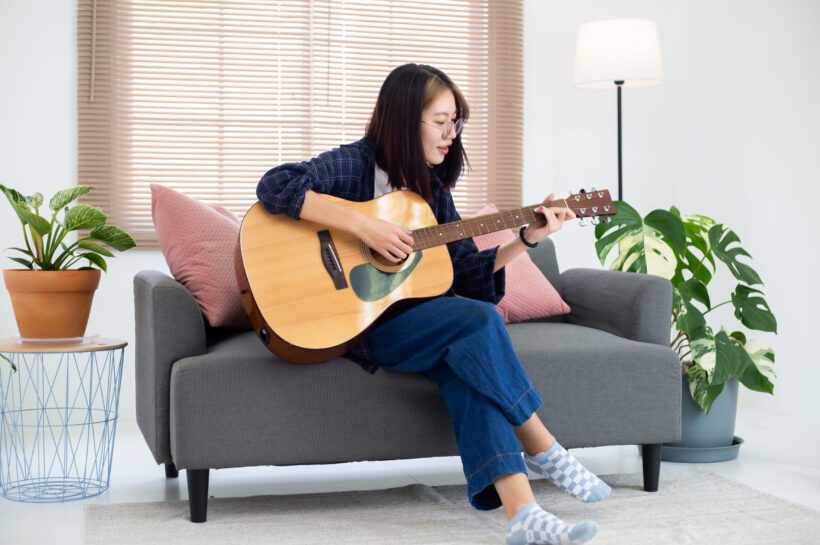In our busy world, finding activities that relax and help us grow can make a big difference in our happiness. Creative hobbies hit this sweet spot—they’re fun while also helping us develop as people. Whether painting, playing music, or making things with your hands, these activities offer more than just entertainment. They become powerful tools for personal growth, teaching us new skills, lowering stress, and helping us discover new sides of ourselves.
How Creative Hobbies Benefit You
Creative hobbies do much more than fill free time—they actively improve our mental and physical health in ways researchers continue to confirm. When we engage in creative activities, we often enter a “flow state,” where we become completely absorbed in what we’re doing. This feeling is deeply satisfying, especially when the activity challenges us just the right amount.
Research shows that creative hobbies like art, writing, and music can greatly reduce stress. After a tough day, spending time on a hobby helps you unwind and recharge. Creative activities also help decrease anxiety and depression by giving you a healthy outlet for emotions that might be hard to put into words.
These hobbies challenge your brain to think differently, which improves overall brain function and memory. Studies have even found that creative activities can make you more productive at work, meaning your hobby might actually help your career too.
Artistic Hobbies for Self-Expression
Visual Arts and Crafts

Visual arts provide a direct way to express yourself creatively. Painting, drawing, and photography let you capture how you see the world or create entirely new worlds from your imagination. You don’t need natural talent for these activities—just a willingness to try and learn.
If you enjoy working with your hands, hobbies like knitting, pottery, jewellery making, and woodworking give you something physical to show for your efforts. Creating something real—whether a handmade scarf or a wooden shelf—gives you a sense of achievement that can boost your confidence.
Special tools with easy grips make many artistic activities accessible to people with different abilities, so everyone can enjoy being creative. Learning and improving these skills builds patience and determination, which helps in other areas of life.
Music and Performance

Music is a universal language, making it one of the most inclusive creative outlets available. Learning to play an instrument like the guitar, piano, or drums takes dedication and practice, which builds discipline and patience. Even with limited mobility, adapted instruments and digital tools can make creating music possible.
Dancing is another powerful form of creative expression through movement. From ballroom to hip-hop, tap to swing, dance helps you express feelings physically while improving coordination and fitness. Many people find that performing arts like singing, dancing, or acting help them overcome shyness and build confidence in their personal and work relationships.
Writing and Storytelling for Mental Growth

Writing in various forms—keeping a journal, creative writing, blogging, or poetry—provides a powerful way to process thoughts and feelings. When you write regularly, you improve your communication skills and gain clarity about your ideas and emotions.
Journaling is a particularly easy way to begin writing. Recording your daily thoughts, dreams, and reflections can help organize your mind. Many people find that putting their feelings on paper instead of keeping them inside brings significant emotional relief.
Storytelling, whether through fiction or personal memoir, helps you make sense of experiences and develop empathy as you explore different perspectives. These skills directly improve relationships and communication in daily life, making writing not just a creative hobby but a tool for personal growth.
Technology-Based Creative Hobbies

The digital world has opened exciting new ways to be creative. Video editing, digital drawing, game design, and coding combine technical skills with artistic vision. These technology-based hobbies can be especially appealing if you enjoy problem-solving alongside creativity.
Learning to code teaches logical thinking while allowing creative expression through building apps, games, or websites. Podcasting allows you to share your thoughts and stories with others while developing communication skills. As our world becomes increasingly digital, these creative tech skills can improve job prospects while providing enjoyable creative outlets.
How Creative Hobbies Help You Grow
Building Patience and Resilience
Many creative activities take time to master. Whether learning guitar chords or perfecting a pottery technique, the process teaches patience and persistence. For example, many golfers say the sport has taught them patience that helps them handle difficult situations at work and in personal relationships.
Creating something—working through mistakes, solving problems, and continuing despite setbacks—builds resilience that extends far beyond the hobby itself. These qualities become valuable tools for facing life’s inevitable challenges.
Improving Mental Health
Creative hobbies lower stress hormones in your body. While these hormones help manage stress correctly, too much can lead to high blood pressure, high blood sugar, inflammation, and sleep problems. Creative activities naturally fight these effects by helping you focus on the present moment rather than worrying about other things.
Artistic hobbies like singing and playing instruments can increase feel-good chemicals in your brain, contributing to feelings of happiness and satisfaction. For the many adults who struggle with mental health issues, creative activities offer an accessible addition to traditional treatments.
Building Social Connections
While many creative hobbies can be enjoyed alone, they also provide opportunities for meaningful social interaction. Joining a local theatre group, attending craft workshops, or participating in a writing circle connects you with people who share your interests.
These social connections make your hobby more enjoyable and fight feelings of loneliness and isolation. For people with disabilities, accessible hobbies can be particularly important for building independence and creating strong social bonds.
Finding Your Creative Outlet
Matching Hobbies to Your Interests
The key to finding a fulfilling creative hobby is identifying activities that naturally interest you. Consider whether you enjoy being outdoors or prefer indoor activities, whether you’re drawn to creative pursuits or analytical tasks, and what physically feels comfortable and accessible to you.
Consider activities you’ve always wanted to try but never had the chance to explore. Maybe you’ve always been curious about calligraphy or pottery. Sometimes, you won’t know if you’ll enjoy something until you try it, so be open to new things.
Making Hobbies Accessible
With the right adaptations, many activities remain accessible regardless of physical limitations. Technological advances—from screen readers to tactile tools—have opened doors to many creative, educational, and recreational activities for those with visual impairments.
Modified approaches to traditional hobbies can make them enjoyable and fulfilling for seniors or individuals with mobility issues. Raised bed gardening, adapted sports, and specially designed tools for crafting ensure that creative pursuits remain accessible to everyone.
Starting Small
Beginning a new creative hobby doesn’t require a big investment or commitment. Start with simple projects and basic supplies, allowing yourself to experiment without pressure. For instance, colouring books designed for adults offer an easy entry point to the visual arts.
Remember that the goal isn’t perfection but enjoyment and growth. Give yourself permission to be a beginner and celebrate small improvements. Much personal growth happens in the process, not just the finished product.
Conclusion
Creative hobbies offer a unique combination of fun and personal development. Whether you express yourself through art, music, writing, or other creative activities, these hobbies provide valuable tools for growth, improving your mental well-being, developing useful skills, and enriching your life.
The beauty of creative hobbies is that there’s something for everyone, regardless of age, ability, or experience level. By making time for creativity in your life, you’re investing not just in an enjoyable pastime but in your own personal growth and wellbeing.
In a world that often values productivity above all else, creative hobbies remind us of the importance of play, expression, and the joy of creating simply for its own sake. These moments of creativity might be the most productive time of all—nourishing your mind, body, and spirit while helping you become a happier, more fulfilled person.



















